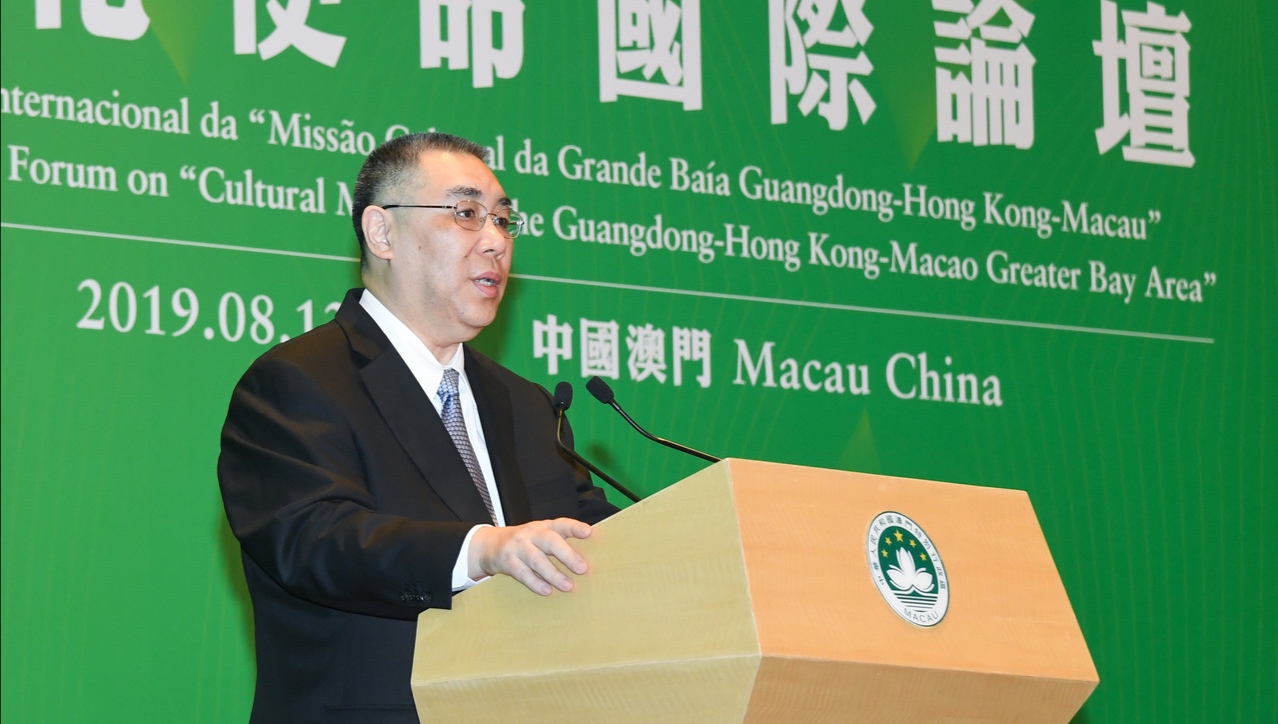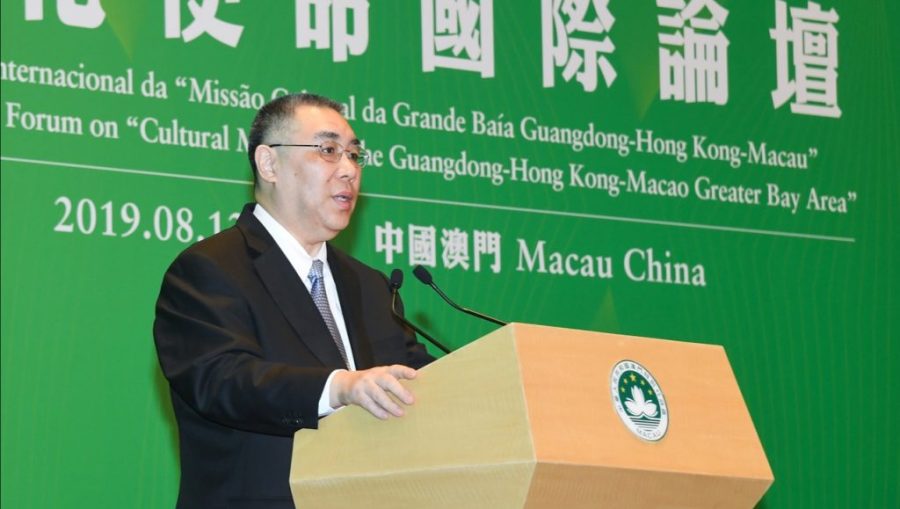Chief Executive Fernando Chui Sai On said on Monday that the building-up of culture was “crucial” to the development of the Guangdong-Hong Kong-Macau Greater Bay Area (GBA), adding that the sustainable development of the GBA needed to be backed by “a stable recognition of cultural identity”.
Chui made the remarks in his opening speech at the International Forum on the “Cultural Mission of the Guangdong-Hong Kong-Macau Greater Bay Area” at the Hyatt Hotel in Cotai.
Central People’s Government Liaison Office in Macau Director Fu Ziying, National Committee of the Chinese People’s Political Consultative Conference (CPPCC) Vice Chairman Edmund Ho Hau Wah, Guangdong Province Governor Ma Xingrui, Hong Kong Chief Executive Carrie Lam Cheng Yuet-ngor and other senior local officials and civic leaders attended the forum.
The two-day forum, which ends on Tuesday, has been organised by the local government’s Policy Research and Regional Development Bureau (DSEPDR).
Chui pointed out that President Xi Jinping personally designed, planned and promoted the GBA development strategy, adding that this national strategy was also a measure to further promote cooperation among the 11 GBA cities, and a new practice of the “One Country, Two Systems” principle, apart from playing a “key role” in securing Macau and Hong Kong’s “long-term prosperity and stability”.
Chui underlined that the Outline Development Plan for the GBA released by the central government at the beginning of this year, apart from stressing Macau’s role as a world tourism and leisure centre and business-service platform between China and Portuguese-speaking countries (PSCs) also gives Macau the mission to set up a “communication base where the Chinese culture as its mainstream with multiple other cultures coexists”.
Chui stressed that this development strategy has shown the central government’s trust in Macau, apart from “injecting new energy” into Macau’s participation in the GBA development.
Chui further stressed that the arrangement has “highlighted” the strategic positioning of giving full play to Macau’s strengths to serve the nation’s needs, and presenting Macau’s “new role and new function” through its participation in the development of the GBA and the nation.
Chui noted that the cities in the GBA region all belong to the cultural circle of “lingnan”, adding that these cities have a “natural recognition of their cultural identity and affection for each other”, adding that the cities could enrich the cultural life of GBA residents and create a favourable “humanistic atmosphere” by integrating the cultural resources in the GBA based on their “common cultural origin and diversity in different shapes”.
Lingnan (“southern mountain ridge”) is a geographic area referring to the lands in the south of the Nanling Mountains. The region covers Guangdong, Guangxi and Hainan.
In her opening speech, Lam said that in the development of the GBA, Hong Kong, Macau and Guangdong could achieve a “synergistic effect” and promote “mutual learning” between the Chinese and foreign cultures.
Lam also noted that the cities in the GBA region have the same cultural origin and similar folk customs, so they already have “very frequent” communication and cooperation in the cultural aspect, adding that the Outline Development Plan for the GBA has further promoted these connections.
According to the Macau Post Daily, Lam pointed out that from 2018 and over the next four years, the Hong Kong government has earmarked HK$140 million to fund Hong Kong artists and art groups’ performances in the GBA.
Lam vowed that this year the Hong Kong government will continue to support more programmes based on the special administrative region’s special features to perform in different GBA cities, adding she hoped that the audiences in the GBA could further comprehend Hong Kong’s modern and traditional as well as oriental and occidental cultural styles.






